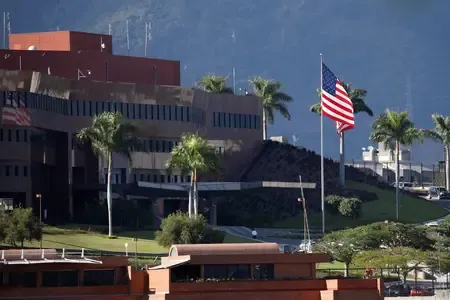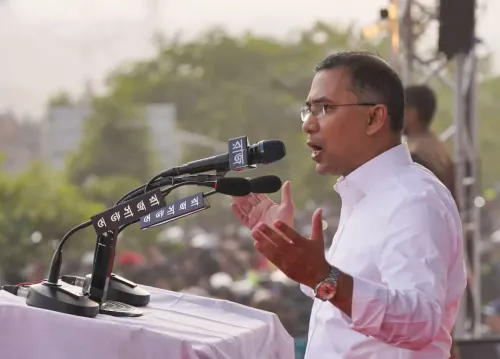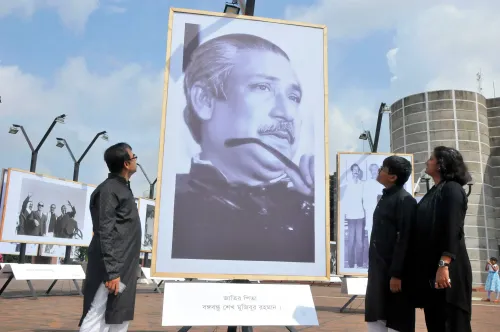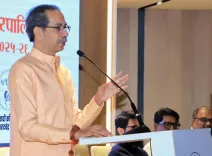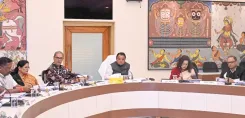Are TLP Protests Unmasking Pakistan's Governance Weakness and Extremism?
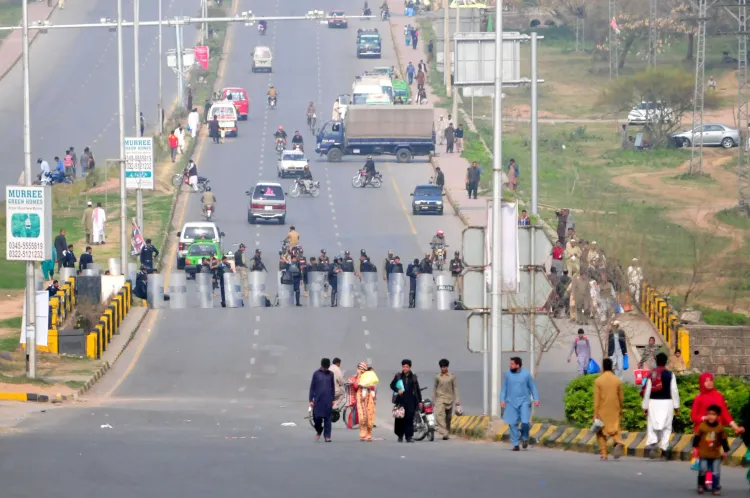
Synopsis
Key Takeaways
- The failure of job creation has contributed to TLP's rise.
- Protests are paralyzing major cities, indicating a governance crisis.
- Public leaders are increasingly held accountable for the situation.
- TLP's influence poses a serious threat to national stability.
- Radical agendas are gaining traction in Pakistan.
Islamabad, Nov 10 (NationPress) The inability of successive Pakistani administrations to provide sufficient job opportunities for the youth, alongside escalating wealth disparities and a wider national trend toward right-wing extremism, has rendered Tehreek-i-Labbaik Pakistan (TLP) a significant challenge in the nation, as highlighted in a recent report.
The report from the Afghan Diaspora Network indicates that Pakistan has faced paralysis from TLP three times over the past decade, with the extremist group incapacitating major urban areas through protests, marches, and blockades.
“The recent demonstrations by thousands of TLP supporters concerning the Gaza situation resulted in traffic disruptions, the halting of civic and transport services, and effectively isolated the capital city of Islamabad from the rest of the nation. However, no substantial response was observed from the government. This situation mirrors events from 2021 when TLP besieged Islamabad for ten days, exposing the vulnerability and ineffectiveness of the Pakistani government and military. This far-right Islamist party has considerable sway in the country,” the report elaborated.
Prominent Pakistani journalist Fahd Hussain condemned the government for its weak governance and inaction as TLP members rampaged, destroying public property, killing police officers, and undermining national sovereignty.
“The government merely observed and remained silent — even the most vocal spokespersons — in the face of this chaos. In Islamabad, senior officials and their political leaders struggled to conceal their anxiety beneath a facade of silence,” quoted Hussain in the Afghan Diaspora Network.
The report pointed out that the public is holding Pakistan's political leaders accountable for the escalating crisis.
“The complete paralysis that has gripped Islamabad for over 48 hours, created by the state’s own monster, TLP, signifies a failure of the state,” remarked former Pakistani legislator Afrasiab Khattak.
There are widespread beliefs that Pakistan’s influential military established TLP to manipulate or exert pressure on political outcomes.
Experts criticized both the civilian government and military for employing appeasement tactics for political or strategic purposes, thereby empowering TLP to dominate Pakistan.
“Pakistan is precariously approaching a point where radical Islamist groups and parties are shaping the national agenda, while state agencies are losing critical battles against Islamist radicalism. The ruling establishment in Pakistan is wholly accountable for this dire situation, having allowed TLP to advance its radical agenda unchecked without learning from previous errors,” stated Vinay Kaura, a non-resident scholar at the Middle East Institute.


